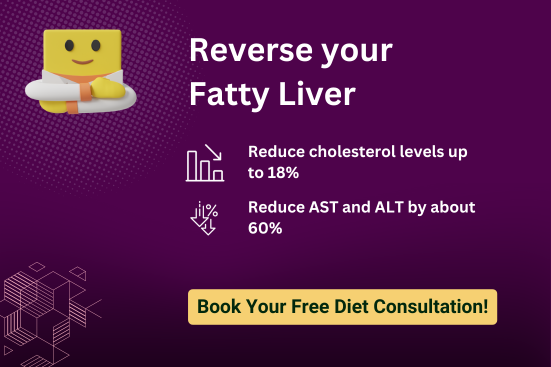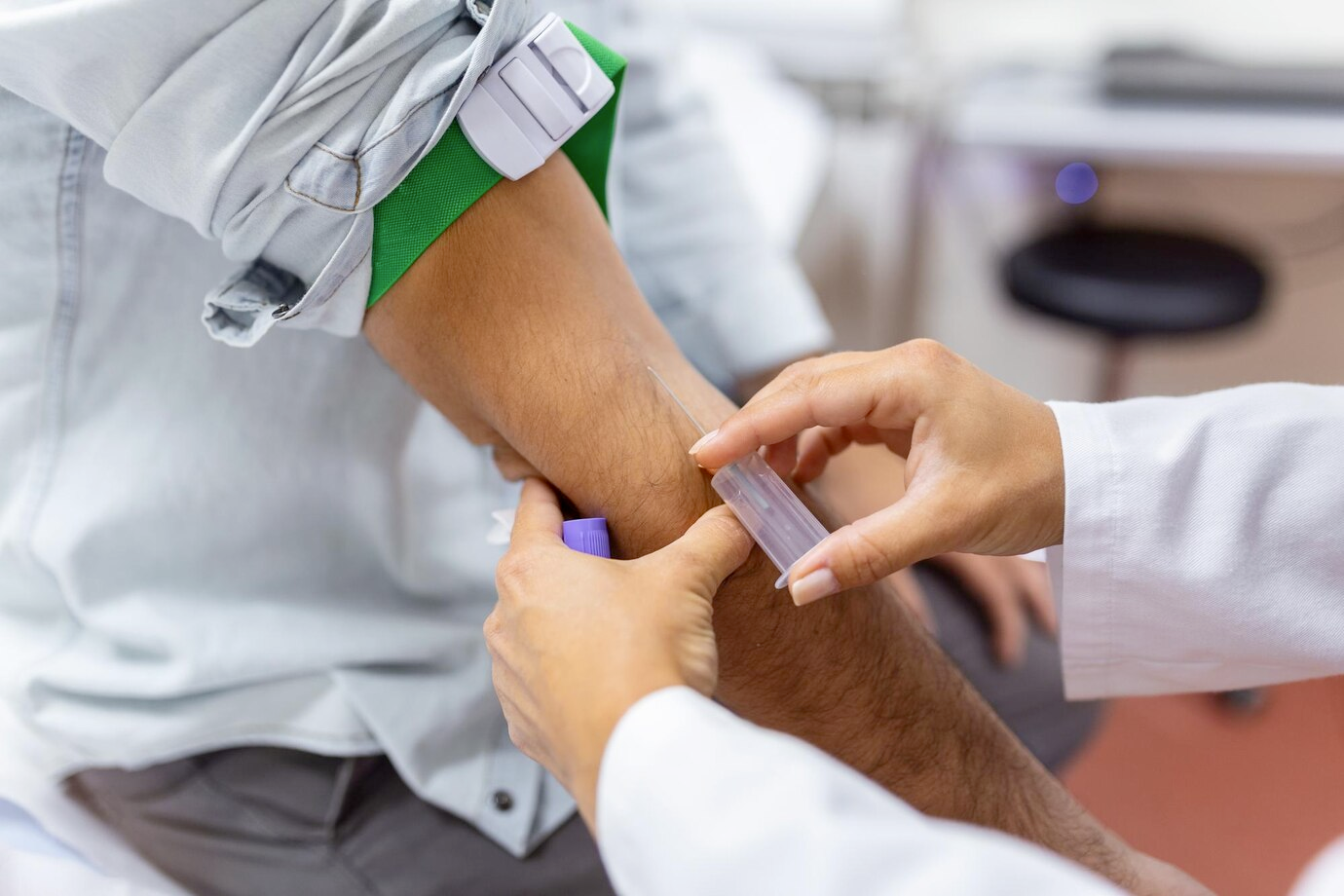A Dietary Guide to Gifting Your Fatty Liver a Long Life

Fatty Liver Treatment: A Pathway to Good Health through Prevention and Care
20 Mar 2024
Fatty liver, a condition once considered relatively uncommon, is now a rising concern among millions of Indians. With our fast-paced, convenience-oriented lives, we often pay little attention to our diets and fitness routines, thereby paving the way for this silent liver ailment. This underlines the pressing need to understand more about fatty liver; its causes, symptoms and the steps we can take to prevent it.
Fatty liver disease happens when there’s an excessive build-up of fat in your liver cells. Its symptoms are often subtle and can be easily overlooked, leading many to underestimate the seriousness of the condition. This lack of awareness can be detrimental as untreated fatty liver can progress to more severe forms of liver disease. Hence, understanding fatty liver’s intricacies forms a crucial part of healthcare education.
Understanding how to treat fatty liver will mark the start of your journey towards better liver health. With the right information and a tailored approach to weight management and specific lifestyle changes, fatty liver reversal is achievable. This blog will provide you with much-needed information about the disease and highlight simple yet effective natural remedies for fatty liver. As you delve deeper into this insightful piece, you’ll gather essential knowledge that will empower you to take proactive measures in your quest for a healthier liver.
Weight Management: The First Step to Prevent and Treat Fatty Liver
If you’re looking to prevent or treat a fatty liver, the first thing on your list should be weight management. It’s no secret that excess body weight is often linked to fatty liver disease. So, managing your weight can be a proactive measure to keep this condition at bay. But how do you go about it? A balanced diet and regular exercise is a good place to start.
Pairing healthy food choices with an active lifestyle can do wonders for your liver health. Opt for a diet rich in fruits, vegetables, lean proteins, and whole grains. At the same time, try to limit your intake of sugary drinks, alcohol and high-fat foods. While weight management and fatty liver are two sides of the same coin, remember that the goal is to gradually lose weight. Sudden or severe weight loss can cause more harm than good in fatty liver treatment.
Understanding Fat: Are All Fats Bad?

Not all fats are villains. Some fats are essential for your overall health and can even aid in fatty liver treatment and prevention. Omega-3 fatty acids, found in fish like salmon and nuts like walnuts, might help reduce fat levels in the liver and combat inflammation.
However, you need to steer clear of saturated and trans fats. These culprits are usually found in fried foods, pastries and packaged snacks. They not only increase your risk of fatty liver but also lead to several other health complications. Learning about these dietary fat types can help you make informed decisions about your food choices.
Natural remedies for fatty liver: 1) Drinking plenty of water throughout the day helps flush out toxins and support liver function. 2) Chronic stress can contribute to inflammation and liver damage. Practising stress-reducing techniques such as yoga, meditation, deep breathing exercises or hobbies you enjoy can help prevent and treat fatty liver.
Liver Health Check-Up: Why Regular Screening Matters
Regular health screenings play a pivotal role in fatty liver treatment and prevention. Liver function tests can detect early signs of fatty liver disease before it becomes severe. Early detection can facilitate timely intervention and prevent further damage.
Don’t forget about routine check-ups even if you’re feeling healthy. Some people with fatty liver disease may not have any noticeable symptoms at first. By the time they start experiencing discomfort or pain, the condition might have advanced significantly. Therefore, make regular health check-ups a part of your routine health care.
Dodging Alcohol and Sugary Drinks: Natural Remedies for Fatty Liver
Alcohol is notorious for its damaging effects on the liver. Regular heavy drinking can lead to alcoholic fatty liver disease over time. But the good news is that abstaining from or reducing alcohol consumption can help reverse this condition.
Keep in mind that ‘moderation’ is key when it comes to alcohol intake. Binge drinking or consuming large quantities of alcohol at once can be particularly harmful. If you’re finding it difficult to control your alcohol consumption, don’t hesitate to seek professional help.
Furthermore, sugary drinks contribute to liver fat accumulation and inflammation. They also cause other health issues like weight gain that can have a significant impact on weight management and fatty liver. Therefore, reducing or eliminating sugary beverages from your diet is crucial for improving liver health and overall well-being.
Exercise and Fatty Liver Reversal: How They Connect
Regular physical activity is an excellent way to prevent and treat fatty liver disease. Exercise helps you maintain a healthy weight, reduces fat in your liver and improves liver function. The exercising doesn’t have to be strenuous; in fact, even moderate activities like walking or cycling can make a difference.
Just remember not to overdo it in the beginning. Start with simple exercises and gradually increase the intensity as your fitness level improves. Consult with your doctor or a fitness expert to ensure that your exercise routine is suitable for your health condition and capabilities.
In this journey towards a healthy liver, our proactive measures and timely treatments play a paramount role. By focusing on weight management and incorporating natural remedies for fatty liver into our daily routine, we can not only treat the condition but also prevent its occurrence in the first place. Simple yet powerful steps such as eating a healthy diet, getting regular exercise and limiting alcohol and sugary drinks intake can bring about significant changes.
At tatvacare.in, we stand with you in this journey towards healthier living. We are dedicated to assisting you with accurate, easy-to-understand information designed to support you in making the best decisions for your health. Your well-being is our topmost priority. Get in touch with us today and let’s work together for a healthier tomorrow. Remember, every step towards your health counts and we are here to guide you through each one of those steps.

FAQs
Q. What is the role of diet in preventing fatty liver?
A: An essential element in avoiding the onset of fatty liver disease is maintaining a balanced diet. Consuming more whole grains, fruits, vegetables and lean proteins can significantly reduce the risk. Limiting processed foods, foods rich in sugar, and alcoholic beverages is equally important.
Q. What are some symptoms that might indicate I have fatty liver disease?
A: Fatty liver often doesn’t present noticeable symptoms until the disease has progressed significantly. However, potential signs include fatigue, pain or discomfort in the upper right abdomen and unexplained weight loss. Please consult your doctor if you experience these symptoms.
Q. How does obesity contribute to fatty liver disease?
A: Obesity often leads to an accumulation of fat in the liver, which can trigger fatty liver disease. Furthermore, obesity can enhance insulin resistance which exacerbates liver fat storage. Thus, it’s imperative to maintain a healthy weight for liver health.
Q. Can fatty liver disease be reversed once diagnosed?
A: Fatty liver reversal is possible if caught in the early stages. Lifestyle modifications like healthier eating habits, increased physical activity and weight loss have shown considerable success in reversing this condition.
Q. Are there any medications to cure fatty liver disease?
A: Currently, there’s no specific medication for treating fatty liver disease. However, managing underlying conditions such as obesity and diabetes can significantly help control the disease. Lifestyle changes like a healthy diet and regular exercise are usually the first line of treatment recommended by doctors.

Medically reviewed by
Dr. Krunal Chaudhari 
MBBS, MD
Recent Blog
- CDSS – Revolutionising Diagnosis with AI-Powered Clinical Decision Support System
- Handwritten to Digital in Seconds: SmartSync Converts Prescriptions Instantly
- Voice Rx by TatvaPractice: A Smarter Way to Digitise Prescriptions
- PCOS Facts vs. Myths: Get the Right Information
- The PCOS-Insulin Resistance Connection: Unlocking Solutions for Better Health
Archives
Categories
- Asthma (20)
- Diabetes (15)
- Fatty Liver (20)
- High Blood Pressure (2)
- High cholesterol (2)
- Hypertension (2)
- Insulin Resistance (1)
- Obesity (8)
- PCOS (6)
- TatvaPractice (11)
Let’s Connect
Quick contact




